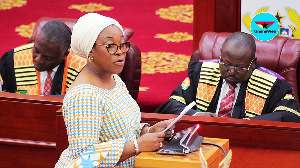Since late August 2019, Nigeria has closed three of her borders -Seme-Krake, Igolo and Idiroko. According to President Buhari, the move is to curb smuggling of rice into the country through its neighbouring countries.
The country further tightened the screws by banning trade across all land borders to force its neighbours, especially Benin and Niger, to halt food smuggling into the country.
But the closure of the border can be traced to President Muhammadu Buhari’s policy of curbing imports to boost local production and conserve foreign exchange reserves when he took office in 2015.
However, the policies, instead of making Nigeria self-sufficient in rice production rather kept prices high and led to the smuggling of rice and other goods from Benin into Nigeria.
The U.S. Department of Agriculture has it that Benin has become the world’s No. 2 exporter of rice to Nigeria, therefore, with the closure of the border, Benin suffers the most.
But while Benin experiences the direct effect of the border closure, other West African countries, including Ghana, have decried the decision, as it is having unintended side effects on their economies as well.
Dr Joseph Obeng, President of the Ghana National Traders Union, told The Chronicle in an interview yesterday that Nigeria’s decision did not only have adverse effect on food items, but a clear violation of the Economic Community of West African States (ECOWAS) protocols on movement of people and trade among member countries.
According to him, Nigerians see the protocols as sacrosanct, hence their decision to nullify it without prior notice to ECOWAS, and urged Ghanaians to follow suit.
“What they have done is a breach of the ECOWAS protocol itself. They have breached the fundamental principle of the protocol on free movement of goods and services.
“They have flouted the laws with impunity without any sanction from the ECOWAS Commission,” he told The Chronicle.
Dr Obeng indicated that if Nigeria has taken such a decision and yet, no punitive measures had been meted out to her, then Ghana should not worry itself over not respecting the protocols.
“What we are saying is that [the] Ghana government, having seen that the option Nigeria chose has nullified the ECOWAS protocol, should also have the teeth to bite and do what they could not do under the guise of the protocol.
“The protocol is not cast in iron that we cannot get ourselves out of it. We should not even use it as a reference point. I am jealous of what the Nigerians have done. We should take a cue from it,” he said.
Though Ghana’s Foreign Minister, Shirley Ayorkor Botchwey, on October 15 gave the assurance that the government would exhaust all diplomatic avenues to get Nigeria to re-open its western borders for the free flow of goods from Ghana to the sub-region, the Deputy Minister of Trade and Industry, Carlos Kingsley Ahenkorah, says Nigeria did not err in closing its western land borders to countries in the ECOWAS sub-region.
The Minister said the only way to get Nigeria open the border is through diplomacy, because there is no law forbidding Nigeria from closing its borders.
Though unilateral border closures go against all commercial and freedom of movement treaties signed under ECOWAS, Mr Ahenkorah told Onua FM on Wednesday that “Nigeria has not violated any laws.”
He explained that the ECOWAS treaty says factories in the sub-region can produce and export to other ECOWAS countries, “but we did not inculcate how to resolve disputes and grievances in the law, so if it happens that way, we use diplomatic means to resolve the issue.”
The Comptroller-General (C-G) of the Nigerian Customs Service (NCS), Col. Hameed Ali, has also insisted that despite the rights for movement of persons among ECOWAS states, there must also be primacy of security over such rights.
Responding to critics who accused the Nigeria government of breaching the ECOWAS protocol on free movement of people and goods, the NCS boss said: “When it comes to security, all laws take back seat.”
He explained further: “We want to make sure that our people are protected. You must be alive and well for you to begin to ask for your rights. Your rights count when you are well and alive.
“Go and ask the people in Maiduguri that when Boko Haram was harassing them, the only question was survival, there was no question of right. This time, Nigeria must survive first before we begin to ask for our rights.”





